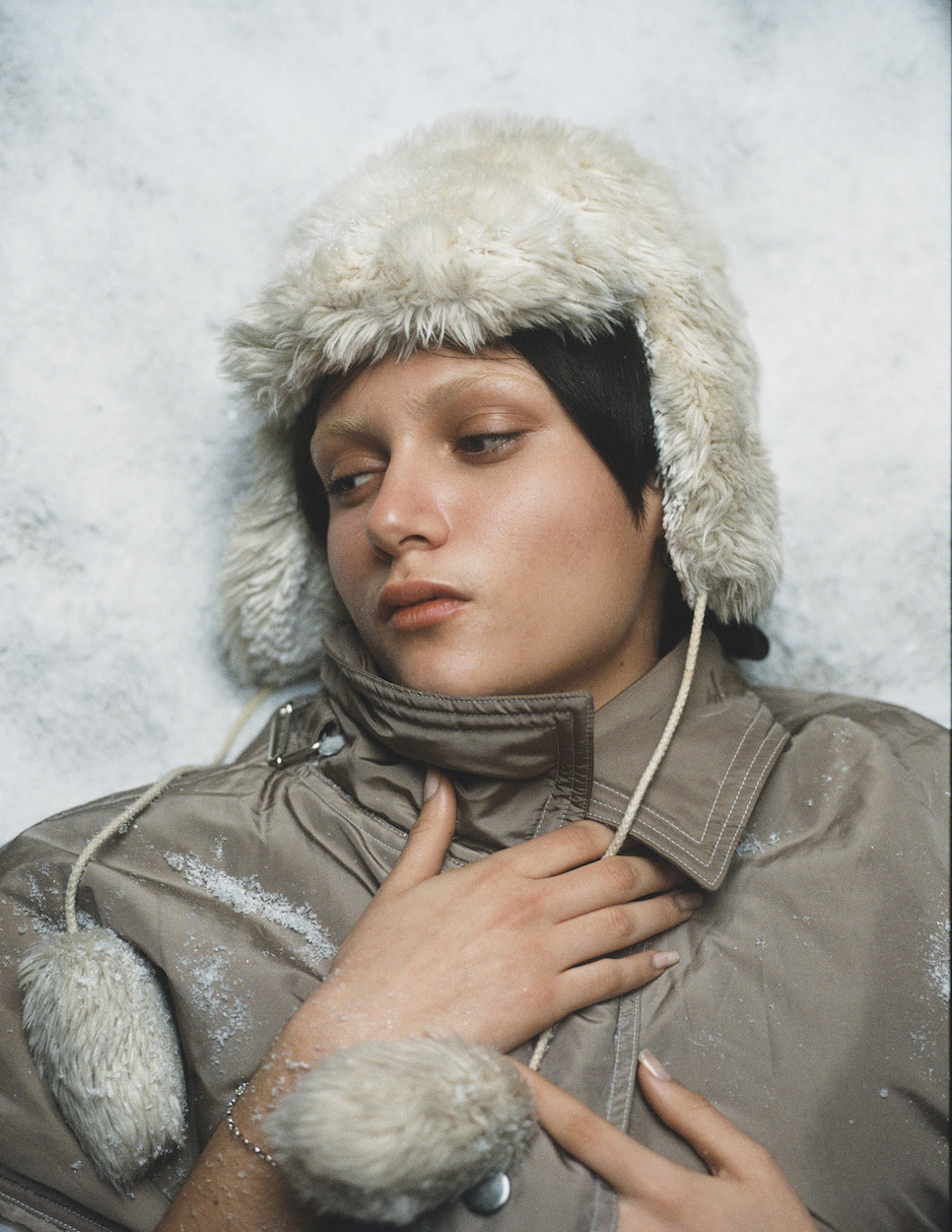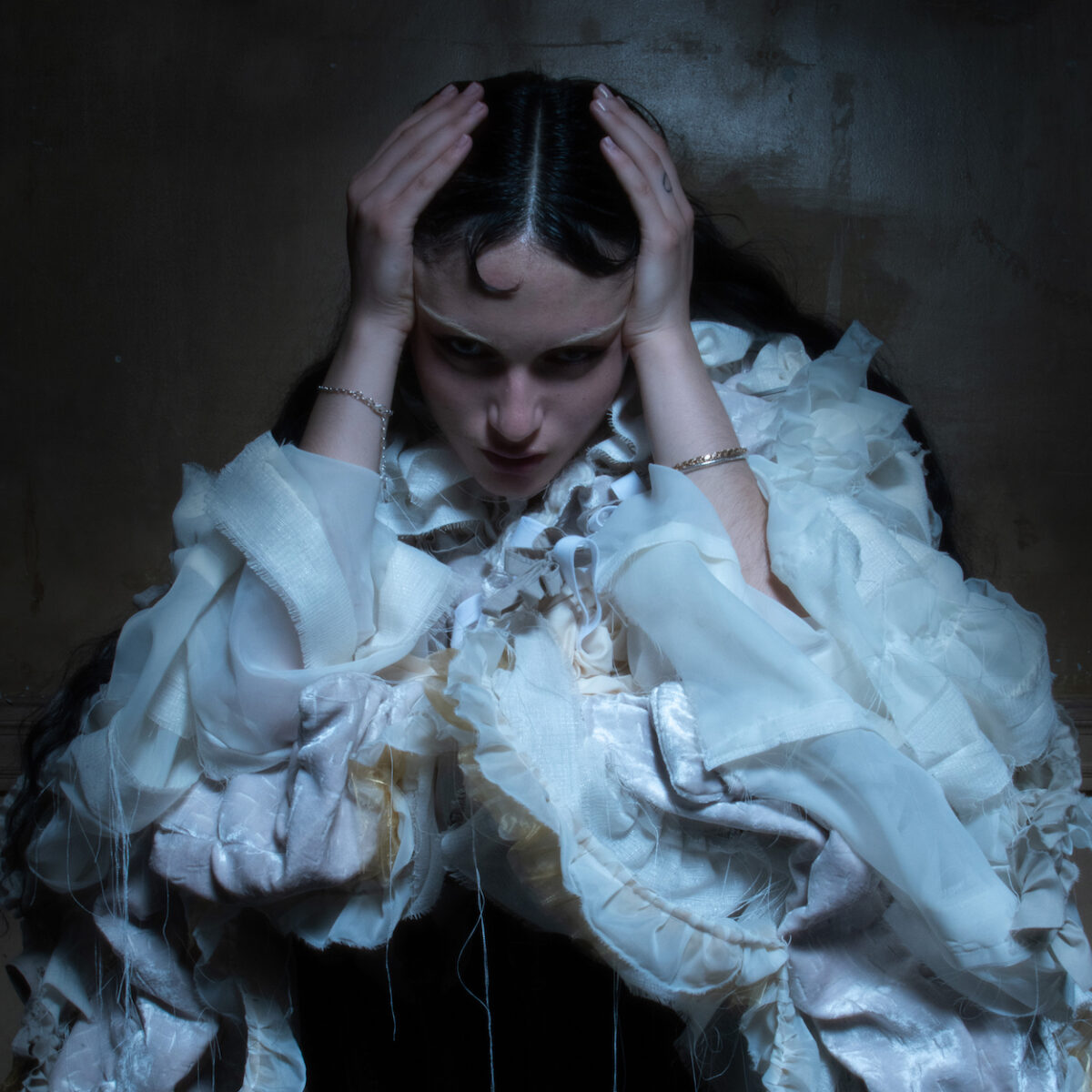Each week, OOR Studio reaches out to various artists, musicians, and those with all-around good taste.
SOUND OF THE WEEK PT. 60: EVITA MANJI

Athens-born musician and singer Evita Manji constructs their sound from various sound elements into a new composition. After releasing two tracks on their platform “myxoxym” in 2021, singer Evita Manji now announces their debut album “Spandrel?” which was released on January 30th this year. On it, they deals with the pressing issues of our time in a complex and profound way. Just like their special aesthetics, the sounds are, on the one hand, tragic and romantic but also dark and mysterious and play out in the realm of pop and club music. What is unique about Evita Manji’s music is that they tries to connect the dots between human experience, climate change, quantum physics and death in an attempt to grasp the original truth of existence. We talked about Evita’s newly released album, how they perceives and handles feelings in their music.
How would you describe your music in three keywords?
Ethereal, dramatic, organic.
Your sound goes rather into the experimental area. How would you describe your music and what makes it so special?
I can not describe my music; it even took me a while to decide on these three words for the first question! What makes it special is that it doesn’t fit in any box because it is informed by many different, often polar opposite influences that I’ve learned to honor and appreciate equally.
Your tracks mix contemporary club music, trance-inspired synthesizers, baroque pop and experimental sound design. How did you come to your music style, was it clear and organic, or was it more a longer process?
Some aspects of it, like the themes in my songs, were very clear for as long as I can remember myself wanting to make music. When it came to sound, I had an idea of what I wanted my music to sound like, but it took a while to develop it and gain the skills to make it come to life. I had to go through many faces that inspired me and left a mark on my sound. I believe it’s still an ongoing process. I don’t think it ever ends; it would be boring if it did. I love exploring new techniques and thinking of ways to evolve my music.
In the last year you have experienced much, which you describe in your new album “Spandrel?”. Have you set certain expectations and goals for the new year?
I tend not to have many expectations as they can lead to disappointment. I like being surprised when things come my way. But some of my goals this year are to work on more music, play live shows and spend a lot of time in nature.

“Spandrel?” is an album that one must let sink in. How much time do you think listeners need to understand and feel the deep themes behind your album?
That’s not something I have an answer to but from the feedback I’ve received, I think people understood and felt the album right away. Anyway, I’m not very good at perceiving time, and my relationship with it is very weird.
In your debut album, you ask yourself the obscure question of which elements of ourselves serve to endure and which are perhaps only decoration in the face of immense loss. Have you found an answer to this in the meantime?
No, no answers here, only questions!
In your songs, especially in “Body/Prison”, one quickly notices how open and honest you deal with your emotional world. How difficult is it for you to reveal your inner self and address highly sensitive topics such as experiences of loss?
I’ve always been in touch with my emotions and wanted to express them, but I was more afraid to do so publicly through my music in the past. The loss experience was like a lesson. It taught me to not hold back and fully appreciate this emotional world I’ve been hiding. It felt as if there was no other option but to pour all these emotions into my music to process them.
Is there a track on your new album that is particularly close to your heart?
I love all of them; equally, I can’t choose one. Today I was into “Lies?” a lot, tomorrow I will probably be into a different one.
On your Instagram account, we can see that you have your own style and aesthetic. To what extent does fashion play a role for you?
I don’t really put much thought into it. Fashion has always played a role in my life, it came from my mother’s love for it, and I highly value personal style. I think this very own style and aesthetic, like my music, is a combination of many different influences and a result of how I interact with my clothes. I often make or modify them myself, especially my accessories and I like to have clothes that I feel connected to and wear for long periods.
Interview by Helen Weiss
Credit: PR/Maria Koutroumpi